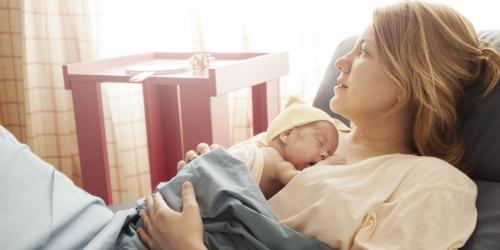Update (May 11, 2017): In a statement released on May 5, 2017, the National Federation of Colleges of Medical Gynecology (FNCGM) expressed its disagreement with the possibility of dispensing the pill without prescription in France. According to professionals, "choosing a suitable pill is not done under the guidance of a mom, a girlfriend or a pharmacist in a few minutes (...) It is unthinkable that a young woman can expose all her questions about the side effects or the sexuality behind the counter of a pharmacy. "
A few weeks ago, the slogan "Free My Pill" came out of the shadows and climbed Trending Topic on Twitter.
This group, which brings together several pharmacists and Family Planning, has published an open letter on its website and launched a petition for the French pharmaceutical laboratories and French and European drug agencies to obtain the issuance of a progestin-only contraceptive pill (without estrogen) without a prescription.
The goal ? Ensure that women can access the contraceptive of their choice, without having to see a gynecologist or midwife, as is the case today, after completing a simple questionnaire.
# FreeMaPilule: a collective for a pill without a prescription
The collective is based on the recommendations of the American College of Gynecologists Obstetricians, which in 2012 "recommended the sale of nonprescription contraceptive pills", and highlighted the existence of a great deal of evidence that women are able to to evaluate whether the use of the contraceptive pill is possible by answering a questionnaire with the help of a pharmacist, "he says in his open letter.
An argument disputed by Geneviève Plu-Bureau, a gynecologist at the Cochin-Port-Royal Hospital in Paris and Professor of Medical Gynecology at Paris V University: "In the United States, the health system is not the same. Studies are conducted on precarious women or adolescent girls who probably do not have the same access to care since they do not benefit from Social Security like French women ".
The group therefore asks the pharmaceutical companies to make a public commitment to ANSM or the European Agency (EMA) to file a marketing authorization authorization for the famous pill before 8 March 2018 , International Women's Rights Day.
To make women more autonomous against their contraception
"The idea of this group came to us a few months after the National Association of Pharmacists wanted to introduce a clause of conscience in its code of ethics.We wanted to make an offensive action," says Clara de Bort, Director of hospital, author of the blog feministe enjupe.com and signatory of the open letter.
It was July 2016. At the time, Laurence Rossignol, Minister of Family Rights, Childhood and Women's Rights, had also expressed his concern in a statement about the possible introduction of this clause (finally discontinued in September 2016): "If this consultation were followed, it would clearly open the possibility for pharmacists to refuse to deliver emergency contraception (morning-after pill), the pill, the IUD or even the condom ".
Since then, this clause has definitely been abandoned and the collective was created to make women more autonomous with regard to their contraception.
"We also want to fight against misinformation and unfounded habits more widely, and we demand that women's autonomy from contraception be promoted everywhere." When the scientific evidence shows that a practice is not dangerous, we do not see in the name of what this practice would remain strictly controlled.This control of the women, of their contraception, it is an unfounded control of their body ", he explains on his site.
Among the signatories, we find many feminist figures and associations (The brazen women, Marie-Hélène Lahaye, Caroline de Haas, Yael Mellul ...), midwives, writers, pharmacists s, but also doctors, like Martin Winckler.
In 2004 already, this one affirmed on his site that it was not necessary to undergo a gynecological examination, a palpation of the breasts and a blood test to be prescribed a progestative pill.
 Source: Martinwinckler.com
Source: Martinwinckler.com
An idea shared by the group: "To know the habits, the practices, the sexual preferences of the woman does not have a clinical justification to prescribe the progestative pill.Examine the breasts or the neck of the uterus either."
On Wednesday, April 19, 2017, the Minister of Women's Rights also showed her support for the collective by relaying their petition via Twitter.
A device already set up abroad
In many countries, such as Romania, Portugal, Russia and Brazil, the delivery of a nonprescription contraceptive pill is already well established.
Others find accommodations, as is the case in Quebec, where pharmacists are allowed to offer "hormonal contraception for a period of three months in addition to emergency contraception", says the group in his open letter.
Another incomprehensible fact for the group: the recent announcement by the French laboratory HRA Pharma of a file application for marketing authorization of a progestin-free pill without prescription.
So many reasons for "Release my pill" to obtain the same authorization in France.
The importance of the first gynecological consultation
According to the group, "a systematic examination is still too often imposed on young women, when they renew their pill prescription". However, it does not specify whether the dispensing of the pill without prescription would be done with or without first gynecological consultation.
A practice that, if it did not require any appointment with a gynecologist, could lead to a lack of information of women, even if the collective believes that the pharmacist is quite capable of dispensing the recommendations of the High Authority of Health ( HAS), which recommends performing a smear every 3 years from the age of 25, and screening (breast or cervical cancer, STI, STD ...)
"There are not really any medical contraindications to micro-progestin contraception and this could be quite feasible with this particular pill.The risk is possibly to increase the number of unwanted pregnancies since this are special contraceptions *, which control the cycle less well, hence the importance of a first consultation, essential to inform and explain to women how contraception works, to make a medical point by taking their blood pressure and reminding them the importance of the smear from the age of 25. Revalorized in the summer of 2016, this consultation is quite long and very important, "explains Professor Geneviève Plu-Bureau.
A French paradox that probably has not finished flowing ink.
* Contraceptives that are taken continuously and cause the absence of rules.



